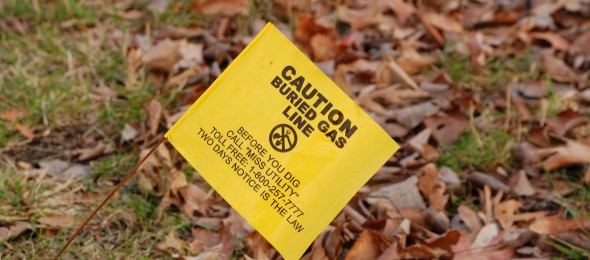The Corpus Christi Court of Appeals has affirmed a temporary injunction pending arbitration in a natural gas pipeline dispute. In Frontera Generation Limited Partnership v. Mission Pipeline Company N/K/A Mission Pipeline and In re Frontera Generation Limited Partnership, Nos. 13-12-00265-CV and 13-12-00321-CV, Frontera Generation Limited Partnership (“Frontera”) entered into a two contracts with Mission Pipeline Company (“Mission”) to acquire, build, and operate a series of pipelines used to transport natural gas from the interstate pipelines of upstream gas providers to a burning facility in Hidalgo County, Texas. Both agreements included the same arbitration clause.
Several years later, Frontera stopped using the Mission pipeline system due to concerns over the quality of the gas being provided by third parties. Instead, the company chose to acquire gas from another source. Five years later, Frontera again sought to acquire gas from Mission. Mission refused the request because the meters used to measure the natural gas supplied gas were no longer active and certain technology was removed. Frontera told Mission it was obligated to ensure the gas system was fully functioning and Mission countered that the third party gas suppliers removed their meters and other equipment because Frontera had abandoned the pipeline.
Next, Frontera sought to foreclose Mission’s assets for non-payment. Mission then obtained a temporary restraining order and filed a complaint in arbitration. A trial court issued a stay pending arbitration and Frontera filed an appeal with the 13th District.
According to the Corpus Christi court,
By appeal, Frontera raises three issues, contending the trial court abused its discretion: (1) by entering a temporary injunction pending arbitration under the FAA; (2) by entering a temporary injunction based on legally and factually insufficient evidence of a probable right of recovery; and (3) by entering a temporary injunction based on legally and factually insufficient evidence of a probable, imminent, and irreparable injury.
First, the appeals court dismissed Frontera’s argument that the trial court abused its discretion when it issued a temporary injunction pending arbitration,
We conclude that, under the FAA, the trial court may enter injunctive relief to preserve the status quo pending arbitration. As stated previously, this determination is supported by the majority of federal circuits that have considered this issue and current Texas federal district court analysis. Moreover, this determination is congruent with the Texas Arbitration Act.
The court continued,
In this case, the temporary injunction was issued in support of arbitration to preserve the status quo and the meaningfulness of the arbitration process. Accordingly, we overrule Frontera’s first issue.
Next, Texas’ 13th District addressed whether the trial court entered “a temporary injunction based on legally and factually insufficient evidence of a probable right of recovery” by stating,
In the instant case, Mission sought a declaratory judgment that it did not breach the contracts with Frontera and alleged a cause of action for breach of contract against Frontera. Jerry Dearing, the president of Mission, testified that Frontera abandoned the Mission system, this abandonment caused TETCO and TGP to deactivate the meters and remove their equipment, and TETCO and TGP’s actions were not within Mission’s control. Further, the agreements between the parties required Frontera to pay a monthly Base Transportation Charge payment, and Frontera ceased making this payment in October 2011. Without addressing the merits of these contentions, we conclude that the evidence presented in the record is sufficient to raise a bona fide issue as to Mission’s right to ultimate relief. See id. We overrule Frontera’s second issue.
The appeals court then examined whether the lower court made its decision regarding the likelihood of irreparable injury to Mission based upon legally insufficient evidence.
In this case, Frontera alleged that Mission breached its agreement and sought to foreclose on all of Mission’s property, both real and personal, including the Mission system. The foreclosure sale was scheduled within approximately one month after demand and was scheduled for a specific, imminent date. Dearing testified that Mission would not have any assets after the sale and the foreclosure sale would “dissolve the company.” In Texas, the potential loss of rights in real property is a probable, imminent, and irreparable injury that qualifies a party for a temporary injunction.
Finally, the 13th District turned to Frontera’s request for a writ of mandamus,
As an initial matter, we note that this case comes to us with a rather unique procedural posture. Specifically, we are being asked to determine whether or not the trial court abused its discretion in “effectively” compelling Frontera to arbitration without a record pertaining to the arbitrability of this case. According to the record provided, Mission has filed a complaint in arbitration, but has not filed a motion to compel arbitration, and Frontera has not filed a response contesting arbitration. The matter has not been fully litigated. Based on the pleadings before us in these two causes, it appears that Frontera seeks to utilize the fact that arbitration is pending to argue that the trial court erred in issuing the temporary injunction, but, inconsistently, seeks to avoid the arbitration. In short, Frontera has not asked the trial court to determine that the dispute is not arbitrable. As a general rule, mandamus will not issue to compel an action that has not first been demanded and refused. See In re Perritt, 992 S.W.2d 444, 446 (Tex. 1999) (orig. proceeding); Terrazas v. Ramirez, 829 S.W.2d 712, 723 (Tex. 1991) (orig. proceeding). Accordingly, we reject Frontera’s contention that the trial court erred in “effectively” compelling arbitration.
After stating that the appeals court would reach the same result on the merits, Texas’ 13th District affirmed the injunction and denied Frontera’s request for a writ of mandamus.














